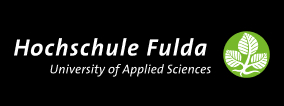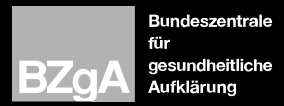Background of Nebolus
Health literacy in times of information complexity
Not least due to the increasing digitalization of our everyday lives in recent years, the amount of information on all aspects of life has increased noticeably. A wealth of information on health-related questions and topics can also be found within a few minutes, regardless of the time and place. The amount of health-related information is associated with increasing heterogeneity in terms of quality, as, in addition to good and reliable health information, there are numerous sources of information with unclear or misleading quality. This presents people with the challenge of finding their way through the jungle of information and making appropriate health decisions based on the variety of information available.
In this context, health literacy is becoming increasingly important. The term refers to the individual’s ability and motivation to find, understand, critically evaluate health-related information, and use it appropriately in everyday life with the aim of promoting, maintaining or restoring one’s own health and the health of others (Sørensen et al., 2012). Recent representative findings indicate that more than half (58.8%) of the German adult population (18+) have difficulties finding and dealing with health-related information (Schaeffer et al., 2021). People with a low level of education and a low socioeconomic status are particularly often found to have a limited health literacy. Health literacy should be promoted as early as possible in the life course, i.e. during adolescence and young adulthood, as knowledge, attitudes and health-related skills are already developed and consolidated at this stage. An early start is particularly important as study findings indicate that adolescents already have limited health knowledge and difficulties in dealing with health-related information (Dadaczynski et al., 2022; Paakkari et al., 2020; Sendatzki et al., 2024).
The importance of settings for health
In light of these and other findings, the National Action Plan on Health Literacy was adopted in Germany in 2018. It comprises 15 specific recommendations for promoting health literacy and five guiding principles. The education system and the local community are of great importance as key living environments. Even though (young) people are increasingly searching for health-related information online, this information is being transferred to and used in analogue life. At a socio-spatial or setting level (e.g. school, university, district, community, city), numerous stakeholders and organisations offer a wide range of health-related services. From sports clubs, advice centres and youth clubs to facilities that provide support in problematic health situations – the spectrum is wide and requires good orientation in the local area (e.g. the place of residence). Following Griese et al. (2020), we call the ability to find, understand, evaluate and apply health-related information and services in the local community as navigational health literacy. However, making use of health-related services and interacting with local professionals depends on many factors and is often not easy, especially for young people. Utilization depends on positive experiences with the support system or the support and trusting relationships with professionals (Gulliver et al., 2010).
Nebolus – promoting health literacy in a fun way.
Goals of Nebolus
The Nebolus project aims to strengthen people of different age groups in their (navigational) health literacy, i.e. in their ability to find, understand, evaluate and use health-related information, services and professionals in their local environment. For this purpose, Nebolus is designed to facilitate low-threshold contact with health-related professionals and services in the local area (e.g. neighbourhood, district, city). Through gamified interaction with the health-related professionals and organisations, Nebolus aims to help overcome barriers and thus increase utilisation.
Development of Nebolus
Intervention development is based on evidence from health-related intervention and implementation research. In addition, research findings from the field of entertainment education were systematically reviewed and used, including a scoping review on location-based games and their effects. Nebolus is the result of a participatory and agile development process in which both the intervention concept and the technical implementation were planned and implemented in various iterations together with users, health-related practitioners and experts from the fields of web and user experience design and web development through workshops, feedback loops and user tests.
Gamified implementation of Nebolus
Nebolus is based on the idea of a scavenger hunt that guides its users through a defined local setting (e.g. school, university, community) on the basis of an exciting story and brings them into contact with health-related support services. Based on the concepts of gamification and serious games (Dadaczynski & Tolks, 2018; Tolks et al., 2020), which are increasingly being used in the field of health promotion and prevention, Nebolus utilises various game mechanics In addition to promoting an immersive experience through enaging stories, tasks, exploration elements (stations), achievements (badges) and visual progress indicators are used. Research has shown that the use of game elements increases motivation to participate and enables low-threshold and incidental learning experiences (Dadaczynski, Schiemann & Paulus, 2016).
Who are the people behind Nebolus?
The Nebolus team
Nebolus is a project of the Public Health Center at Fulda University of Applied Sciences and is funded by the Federal Centre for Health Education (BZgA). Nebolus is driven by an interdisciplinary team from public health, health promotion & prevention, social sciences and user experience design. The Nebolus team also receives support from a Youth Advisory Board and a Practical Advisory Board.





